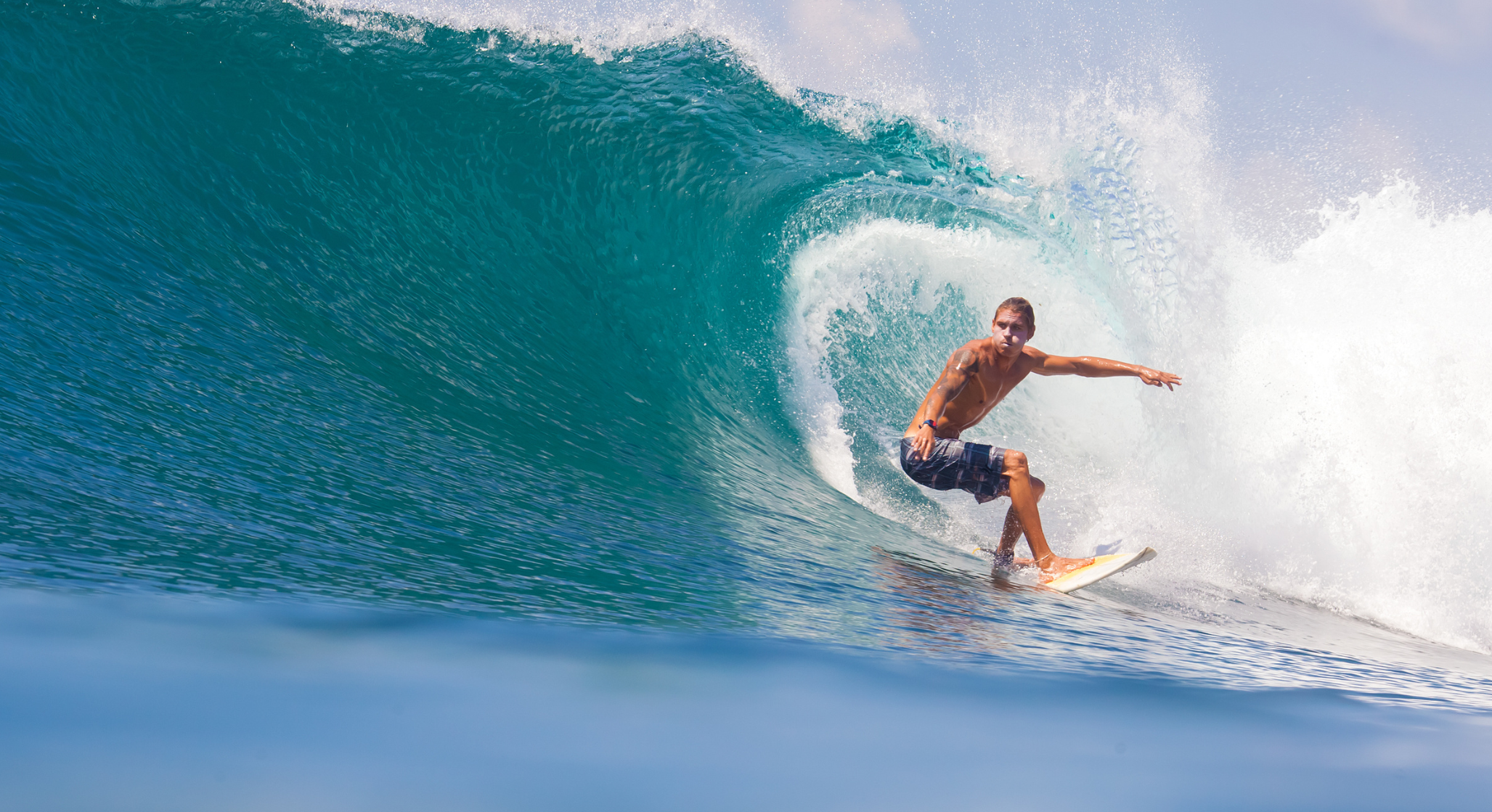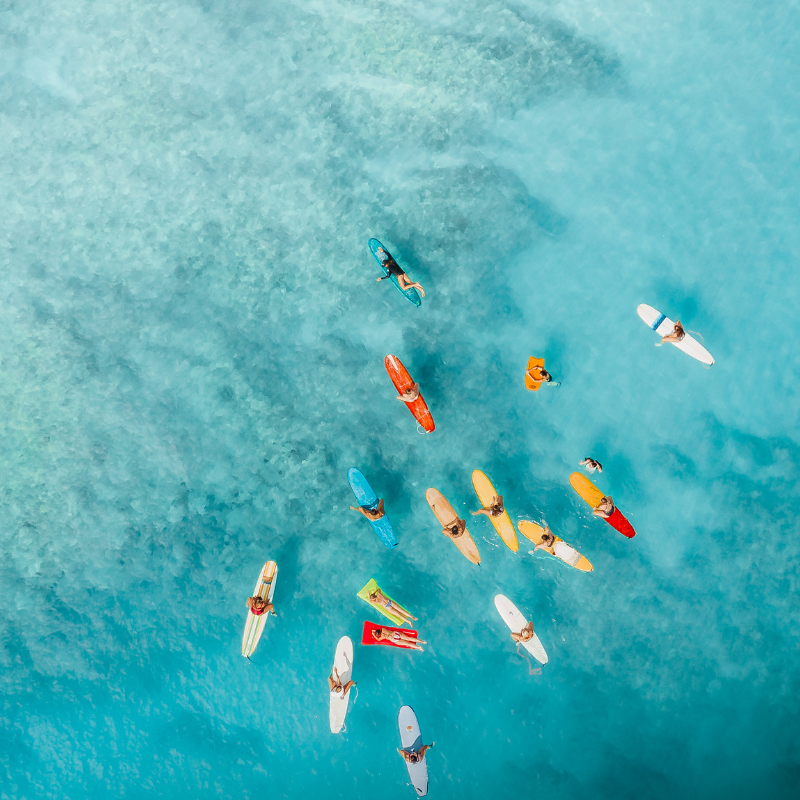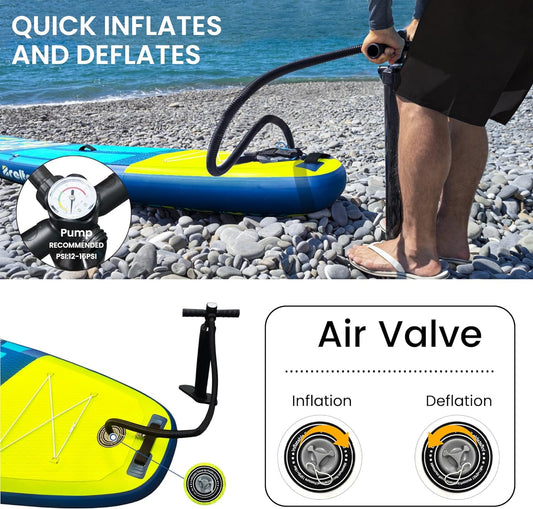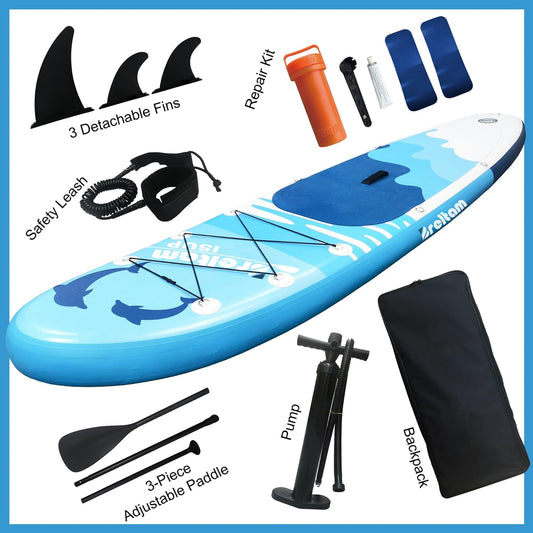
Paddle Board
Turn your backyard into a cozy retreat for your feathered friends. Shop now and give your chickens the home they deserve!
-
Breltam 11" Inflatable Paddle Board Stand Up, Surf and Fishing Blow Up Paddle Board, Wide Stable Design and Non-Slip Comfort Deck SUP Board for Binger
Regular price $149.99Regular priceUnit price / per$459.99Sale price $149.99Sold out -
Breltam 10" Inflatable Stand up Paddle Board, Surf and Fishing SUP Board, Wide Stable Design and Non-Slip Comfort Deck Blow Up Paddle Board for Adults & Youth
Regular price $129.99Regular priceUnit price / per$399.99Sale price $129.99Sold out
FAQ
What are the different types of paddle boards available on the market?
- All-around: Versatile boards suitable for various water conditions and activities.
- Touring: Longer, narrower boards designed for longer distances and better tracking.
- Surf: Shorter, maneuverable boards ideal for riding waves in the ocean.
- Inflatable: Portable boards that can be inflated and deflated for easy transport and storage.
- Yoga/Fitness: Wide, stable boards with added features for yoga or fitness activities on the water.
- Racing: Sleek, high-performance boards optimized for speed in competitive racing events.
What size paddle board should I choose based on my height and weight?
The size of the paddle board you choose depends on factors such as your height, weight, skill level, and intended use. As a general guideline, taller and heavier individuals may require longer and wider boards for stability and buoyancy, while smaller individuals may opt for shorter and narrower boards for maneuverability. It's recommended to consult with a paddle board expert or try different sizes to find the best fit for your body type and preferences.
How do I properly care for and maintain my paddle board?
Proper care and maintenance are essential for prolonging the lifespan of your paddle board. This includes rinsing the board with fresh water after each use to remove salt, sand, and debris, storing it in a cool, dry place away from direct sunlight and extreme temperatures, and regularly inspecting and repairing any damage or wear to the board, fins, and accessories. Additionally, following manufacturer guidelines for inflation, deflation, and storage of inflatable boards is crucial for maintaining their integrity and performance.
Can paddle boards be used in both freshwater and saltwater environments?
Yes, paddle boards can be used in both freshwater (lakes, rivers, ponds) and saltwater (oceans, bays, estuaries) environments. However, it's important to rinse the board thoroughly with fresh water after each use in saltwater to prevent corrosion and damage to the board's components. Additionally, taking proper precautions, such as using corrosion-resistant materials and avoiding exposure to harsh elements, can help prolong the lifespan of the board in saltwater conditions.





